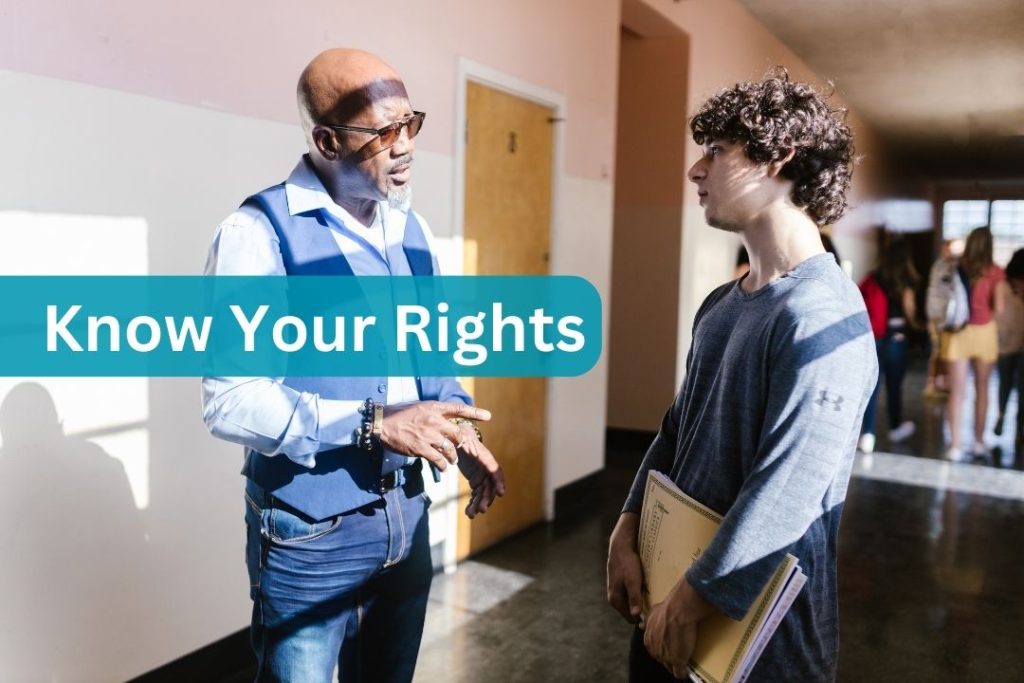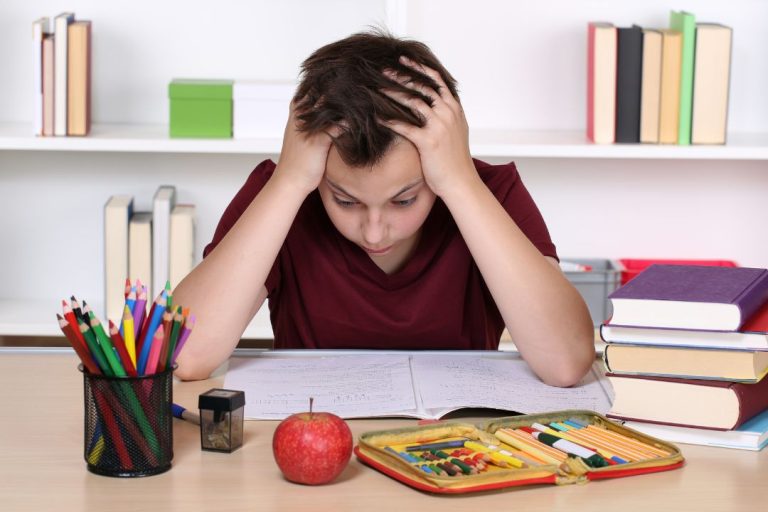Can a Teacher Press Charges Against a Student? Know Your Rights

A teacher can press charges against a student if the student commits a criminal offense. Legal actions depend on the severity of the incident and local laws.
Within the educational environment, conflicts between students and teachers can arise. While most issues are resolved internally, certain situations warrant legal intervention. Teachers hold a unique position of authority and responsibility, yet they are not immune to acts of violence, theft, harassment, or other criminal behaviors from students.
When such incidents escalate beyond school disciplinary measures, a teacher, like any citizen, has the right to seek legal recourse. This is particularly true if the teacher experiences physical harm, severe harassment, or other offenses that are clearly outlined in criminal law. The decision to press charges marks a significant step, often reflecting the breakdown of traditional disciplinary avenues and the need to ensure personal safety and uphold the rule of law. Understanding these rights is crucial for maintaining a safe and respectful learning atmosphere for both educators and students.
Understanding Teacher Vs. Student Legalities
In today’s educational environment, the relationship between teachers and students is governed by a complex framework of legal boundaries. While teachers are positioned to maintain a structured and safe learning environment, they are sometimes faced with challenging behaviors that can blur the lines between disciplinary actions and legal issues. This segment delves into the intricate dynamics of when educators may consider pressing charges against a student, the role of school policies, and the impact of state laws in these situations.
The Legal Boundaries Between Educators And Students
Understanding the legal framework that defines the educator-student relationship is vital. Teachers have a duty to create a conducive learning atmosphere and are often vested with the authority to discipline students within the school’s policies. However, there are clear legal boundaries protecting both parties. Acts of violence, theft, or harassment perpetrated by a student against a teacher can breach these boundaries and, as a result, may warrant legal action.
When Disciplinary Actions Cross The Line Into Legal Matters
Disciplinary actions taken by educators are generally supported by school policies; yet, certain situations may escalate beyond the internal disciplinary measures. When behavior poses a significant threat to the safety or well-being of staff or students, or when it breaks not just school rules but also the law, educators may need to involve law enforcement and legal proceedings may be considered.
Roles Of School Policies And State Laws In Conflict Resolution
Every school has its unique set of policies designed to manage conflicts and disciplinary issues. These policies often outline the consequences for student misconduct and the process for escalating concerns. Concurrently, state laws provide an overarching framework that governs the rights of teachers and students alike. When conflicts arise, it’s important to adhere to both these policies and legal statutes to ensure fair and just outcomes.
- School policies may include behavioral guidelines, anti-bullying regulations, and procedures for handling infractions.
- State laws can mandate reporting requirements for certain incidents, define the limitations of physical restraint, and establish the legal ramifications for criminal conduct.
Charge Pressing Basis In Schools
Understanding the complexities of the educational environment is essential when addressing the sensitive topic of when a teacher might consider legal recourse against a student. Schools function as microcosms of the larger society, reflecting the order and the law of the land. Here, we delve into the circumstances and types of offenses that could potentially lead to a teacher pressing charges to maintain this order and ensure a safe teaching and learning environment.
Circumstances Under Which A Teacher May Consider Legal Action
In certain situations, a teacher may be compelled to explore legal action against a student. These difficult decisions are not taken lightly and often arise after the exhaustion of all school-based disciplinary measures. The necessity for such a step forwards is contingent upon specific conditions being fulfilled.
- The student’s actions must constitute a clear violation of the law, surpassing the bounds of school policy infringement.
- Evidence of potential or actual harm done to the teacher or other students as a result of the misconduct.
- A situation where the school’s administrative actions fail to adequately address the severity of the student’s actions.
- Persistent and egregious behavior that disrupts the educational process for others.
Types Of Offenses That Might Warrant Charges Being Pressed
Not all student misbehaviors justify the pressing of charges; however, there are definitive categories of offenses that enter the legal domain. Teachers and schools bear a responsibility to safeguard their students and staff, leading to legal intervention in cases of:
| Type of Offense | Description |
|---|---|
| Assault | A physical attack or threat to the teacher or others that may instill fear or cause bodily harm. |
| Harassment | Unwelcome conduct, including bullying or cyberbullying, that creates a hostile environment. |
| Theft or Vandalism | Deliberate destruction of property or theft, impacting the learning environment and resources. |
| Drug or Weapon Possession | Bringing illegal substances or weapons onto school premises, violating state and federal laws. |
| Sexting or Indecency | Actions that involve sharing explicit images or violating privacy can transcend school policy and necessitate legal involvement. |

Teachers’ Rights And Protections
The safeguarding of teachers against improper conduct by students is a pressing concern that garners significant attention. Those facing aggressive or even violent students are entitled to legal protections, guaranteeing their safety and well-being within the educational environment. Understanding a teacher’s rights and the mechanisms in place to uphold these rights can empower educators and foster a more secure teaching atmosphere.
Legal Safeguards For Teachers Facing Aggressive Or Violent Students
Teachers are not defenseless when threatened by student aggression. A range of legal measures serves to protect them.
- School Policies: Every educational institution has established protocols to handle student misbehavior. Zero-tolerance guidelines against violence are often included to ensure immediate and firm action.
- Educational Laws: Federal and state laws provide frameworks that support teachers. These laws include measures against bullying, harassment, and other forms of abuse.
- Educational Support Professionals: These individuals work alongside teachers to address and manage student behavior, providing an extra layer of protection.
- Legal Action: In severe cases, teachers may pursue restraining orders or legal charges against students demonstrating extreme misconduct.
It is crucial for teachers to report incidents promptly and leverage the support system in place.
Rightful Steps For Teachers Encountering Unlawful Conduct
When teachers face unlawful conduct, it is imperative they follow a set procedure to protect themselves and their students.
- Document the Incident: Keep a detailed record of what transpired, including times, dates, and any witnesses.
- Report to Authorities: Inform school administration immediately and, if necessary, contact law enforcement.
- Seek Guidance: Consult with union representatives or legal counsel to understand available options.
- Engage with Parents: Engaging the student’s parents can sometimes resolve the issue without escalating to legal action.
- Follow School Procedures: Adhering to the institution’s established protocol is critical, providing a basis for further action if required.
Ensuring action is taken swiftly and effectively not only maintains the teacher’s authority but also upholds the integrity of the educational system.
Evaluating Student Misconduct
In schools, every classroom incident requires a thoughtful approach to discern the appropriate course of action. Evaluating student misconduct is a complex process that involves not only understanding the nature of the action but also considering the potential legal ramifications. Beyond disciplinary measures within the educational institution, certain behaviors may cross the line into criminal territory, prompting the question: Can a teacher press charges against a student? Let’s delve into the factors that shape this decision, looking at the severity of student actions and when such behavior could escalate to involve legal consequences.
Assessing The Severity Of Student Actions
Dealing with student misconduct begins with a clear assessment of the incident. Educators and school administrators often employ a tiered approach, categorizing behaviors based on their severity and the threat they pose to school safety and the learning environment. Minor infractions might involve classroom disruptions or defiance, which usually stay within the domain of school discipline.
More significant transgressions, such as bullying, theft, or vandalism, warrant closer examination. These behaviors often result in more stringent school penalties and may require the involvement of parents or guardians. Such instances are addressed through the school’s code of conduct and may include detention, suspension, or even expulsion, depending on the school policies.
At the highest level, extreme conduct might encompass violent acts, drug distribution, or weapon possession. These incidents raise the stakes significantly, potentially leading to police involvement and legal proceedings. In these cases, a teacher or school may have no choice but to escalate the matter to ensure the safety and well-being of everyone involved.
When Student Behavior May Lead To Criminal Charges
Not every instance of student misconduct will result in criminal charges; however, certain circumstances demand legal intervention. Recognizing these scenarios is critical for teachers and school officials. Examples of student behaviors that might lead to criminal charges include:
- Assault: Physical attacks against peers, teachers, or staff members can constitute assault, especially if they result in bodily harm.
- Threats: Verbal or written threats of violence are taken seriously and could be grounds for charges, particularly in a post-Columbine and post-Sandy Hook era.
- Drug-related offenses: The possession or distribution of illegal substances on school premises violates both school policies and state laws.
- Sexual offenses: Incidents involving sexual harassment, assault, or any form of unwanted sexual conduct can lead to severe legal consequences.
- Weapon possession: Bringing a weapon to school breaches not only school rules but also public safety laws.
When such behaviors occur, schools must act swiftly and decisively. Collaborating with law enforcement, they ensure that the student’s actions are appropriately addressed. In these instances, a teacher or the school itself might be required to press charges to fulfill legal obligations and protect the school community.
It’s essential to keep in mind that each incident is unique, with the context being crucial. The student’s age, intent, and past behavior, as well as local laws, will influence the decision to move forward with criminal charges. Education professionals receive training to handle these delicate situations, aiming to balance disciplinary action with the overarching goal of student rehabilitation and the maintenance of a safe learning environment.
Can A Teacher Press Charges? Legal Insights
Welcome to an in-depth discussion about the legal dynamics that come into play when considering if a teacher can press charges against a student. Situations in educational settings can sometimes escalate, leading to the consideration of legal action. Understanding the nuances of these challenging scenarios is crucial for educators, students, and parents alike. This blog post will explore the procedures and the roles of law enforcement within the scholastic context.
Understanding The Legal Process For Filing Charges
The legal process for filing charges is complex and multifaceted. Teachers, as individuals, hold the right to seek legal recourse if they have been physically harmed or threatened by a student. The initial step involves reporting the incident to the appropriate authorities, usually starting with the school administration.
Here’s a brief overview of the steps involved:
- Document the incident thoroughly.
- Report to school officials or directly to the police, depending on the severity of the case.
- The police may conduct an initial assessment to determine if there’s a basis for criminal charges. If so, they will investigate further.
- If the investigation supports it, the police will refer the case to the prosecutor.
- The prosecutor decides whether to press charges and what those charges will be.
Throughout this process, the teacher may be asked to provide evidence or testimony to support the allegation. Every step must be carefully navigated, ensuring legal protocols are strictly followed.
Role Of The Police And Courts In Educational Environments
In an educational setting, dealing with conflicts involving potential criminal activities delicately balances maintaining a learning environment and upholding the law. Police and courts may intervene when incidents go beyond the scope of school discipline and potentially break the law.
| Role | Description |
|---|---|
| Police | Responsible for investigating the incident, gathering evidence, and, if necessary, making an arrest. The involvement of the police is typically reserved for more serious incidents. |
| Courts | They determine the veracity of the charges, adjudicate on the matter, and, where applicable, decide on the consequences following the law. |
Both the police and courts play a crucial role in instances where the nature of the incident may constitute a criminal offense. Their objective presence ensures that all parties receive fair treatment under the law. Notably, the involvement of these institutions underscores the seriousness of certain behaviors and acts as a deterrent against future occurrences.
When matters escalate to this point, the legal system takes precedence, and the school’s internal mechanisms for discipline take a secondary role. Understanding the ramifications and legal boundaries is essential for both educators and students to navigate these difficult situations effectively and responsibly.
Navigate Legal Support And Resources
In the realm of education, challenging situations may arise that leave educators feeling vulnerable and in need of legal support. One of the most difficult circumstances is when a teacher contemplates whether they can press charges against a student. Navigating legal support and resources is a crucial step for any educator facing such a dilemma. The avenues available, including seeking legal counsel and leveraging union or administrative support, provide a framework to manage these intricate legal matters. Below, educators can find detailed guidance on how they can access these essential services.
Seeking Legal Counsel As An Educator
Understanding your legal rights and the intricacies of the law is paramount when facing potential litigation against a student. Seeking expert legal counsel specializing in educational law to guide you through the process. Here’s what you should consider:
- Research lawyers with a track record in education-related cases.
- Consult with legal professionals to clarify your position and explore options.
- Act promptly to ensure that any legal actions taken are within statutory time limits.
- Know the state and federal laws that apply to your specific case, as these will dictate possible courses of action.
Union And Administrative Support For Involved Teachers
Most educational institutions have systems in place to support their staff in times of legal strife. Union and administrative support can be a teacher’s first line of defense. To effectively utilize these resources, take the following steps:
- Contact your teacher’s union representative to discuss your situation and seek advice on next steps.
- Understand the support and protections offered by your union, such as legal representation or advice on workplace rights.
- Engage with your school’s administration to inform them of the situation and seek their input and support.
- Review your educational institution’s policies and contracts for guidance on the situation and any provisions for legal conflicts.
Consulting with your union and administrative bodies can provide not only legal guidance but also the emotional support needed during these times.
Addressing The Aftermath Of Charges
When charges are pressed by a teacher against a student, the repercussions extend far beyond legal boundaries into the very heart of the educational sphere. The complexity of navigating post-charge scenarios demands delicate handling as relationships and classroom dynamics are invariably altered. Understanding the effects and seeking ways to mitigate the impact is crucial for the welfare of both the educational environment and the individuals involved.
Implications For The Teacher-student Relationship Post-charges
The decision for a teacher to press charges against a student can irrevocably change the dynamic of their relationship. Trust, which serves as the cornerstone of educational growth, may be deeply eroded. A once cohesive learning atmosphere may become tense and uncomfortable for both parties involved. It is not uncommon for students to feel resentment or betrayal, questioning the educator’s role as a mentor and protector.
Vital to the recovery process is a school’s provision of clear communication and support. Transparency about the nature of the incident and actions taken is key in preventing rumors that could further damage relationships. This strategy should be implemented with the utmost sensitivity to privacy and legal protocols.
- Facilitating open discussions moderated by school counselors can restore dialogue.
- Establishing clear, revised boundaries is paramount to redefining the student-teacher association.
- The role of restorative justice in healing divisions might be considered.
Psychological And Educational Impact On The Classroom Dynamic
The ripple effect of charges within the classroom context cannot be overstated. Emotional upheaval might be experienced widely among students, impacting their psychological climate and in turn, their educational performance. A sense of uncertainty and anxiety could overshadow the environment, necessitating a strategy to re-establish normalcy and focus.
- Proactive involvement of mental health professionals to provide support and counseling.
- Classroom sessions dedicated to emotional literacy and stress management techniques.
- Adapting lesson plans to include activities that promote team-building and empathy.
Academically, the class may require a period of adjustment. Teachers may need to reconsider their curriculum priorities or timelines to accommodate for lost time or disrupted learning. Ensuring all students receive fair and equitable education in the wake of the charges should be a primary goal.
Ultimately, fostering an environment of mutual respect and understanding will be essential in overcoming the hurdles posed by such challenging circumstances.
Frequently Asked Questions Of Can A Teacher Press Charges Against A Student
Can Teachers Legally Press Charges Against Students?
Teachers can take legal action if a student commits a crime against them. This includes assault, theft, or harassment. The teacher must report the incident to the police who will investigate and determine if charges should be filed.
What Legal Actions Can A Teacher Take Against A Student?
Teachers can report a student to school administrators or law enforcement. Depending on the severity, actions can range from school disciplinary measures to legal charges for criminal behavior.
Are There Limitations On Teachers Pressing Charges?
Yes, teachers must act within the law. They cannot press charges for typical classroom misbehavior. Charges are reserved for unlawful actions like assault or vandalism.
How Does Pressing Charges Against A Student Work?
Teachers must provide evidence of the crime to law enforcement. The police will then investigate, and if sufficient evidence is found, the case can be referred to the legal system for potential prosecution.
Conclusion
Navigating the complex interactions within educational environments is vital. Teachers have rights and can press charges if necessary, but every situation is unique. For students and educators alike, understanding legal boundaries ensures a safe learning space. Always consider professional advice for individual cases.
Seek harmony in education, respecting both parties’ well-being.

Emma combines her teaching experience with her writing skills to produce engaging and informative content. She covers a range of topics, from classroom management to innovative teaching techniques.






